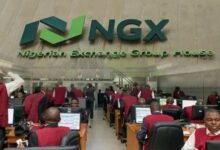Nigeria Moves to T+2: Capital Market Aligns with Global Best Practice

Nigeria’s capital market is set for a structural leap forward as the Central Securities Clearing System (CSCS) confirms the adoption of a T+2 settlement cycle from November 28, 2025, following approval by the Securities and Exchange Commission (SEC). This transition, from the current T+3 model, will significantly enhance market efficiency, boost liquidity, and align Nigeria with the operational standards of advanced markets such as the U.S., U.K., and South Africa.
Why It Matters: Beyond the Technical Shift
Settlement cycles define how long it takes for securities transactions to be finalized — essentially when buyers receive their shares and sellers get their money. By moving to T+2 (trade date + two days), Nigeria shortens the clearing window, reducing exposure to counterparty risks and giving investors faster access to liquidity.
For a market often criticised for sluggish processes and weak investor confidence, this reform is more than a compliance upgrade. It is a signal to foreign portfolio investors that Nigeria is serious about reducing friction in its financial markets.
CSCS’s Positioning
Haruna Jalo-Waziri, CEO of CSCS, described the transition as a “major milestone in Nigeria’s market modernisation journey”. According to him, the implementation reflects a collaborative effort among regulators, exchanges, and stakeholders.
- Counterparty risk is reduced, lowering the probability of settlement failures.
- Liquidity improves, with faster cash turnaround for both local and foreign investors.
- Investor trust is strengthened, critical for deepening capital inflows into equities and fixed income.
The Settlement Cycle Review Committee (SCRC), coordinated by CSCS, has already submitted a robust framework to SEC to ensure a seamless market-wide rollout. A dedicated stakeholder webinar on September 10 will provide additional guidance ahead of the November launch.
Global Context: Where Nigeria Stands
- United States: Transitioned to T+2 in 2017 and now preparing for T+1 in 2024/25.
- European Union & U.K.: Operate on T+2 cycles.
- South Africa & India: Already on T+2, with India piloting T+1 in select stocks.
Nigeria’s move positions it to remain competitive in attracting both portfolio inflows and cross-border listings, particularly as frontier and emerging markets compete for scarce capital.
Investor Implications
- Institutional Investors: Faster cash settlements improve capital allocation efficiency.
- Retail Investors: Reduced waiting time enhances trust in digital trading platforms.
- Foreign Portfolio Investors (FPIs): A globally aligned system reduces entry barriers and FX settlement anxieties.
The T+2 transition comes at a time when Nigeria’s equities market is seeing renewed foreign interest amid exchange rate reforms, sectoral repricing, and capital market digitalisation.
BRANDECONOMY Takeaway
This reform is not just about ticking a box for global compliance. It is a confidence-building measure that could prove decisive in deepening Nigeria’s market depth and liquidity. The question, however, is whether complementary reforms — FX transparency, stable macro policy, and corporate governance — will follow swiftly enough to make T+2 more than just a symbolic win.










